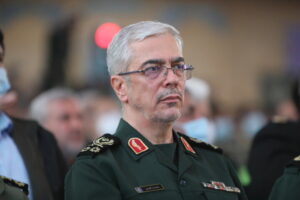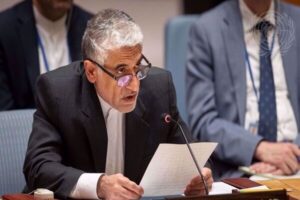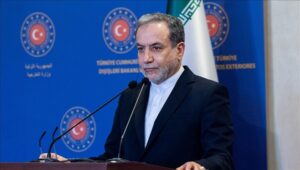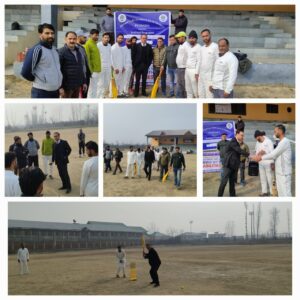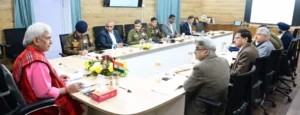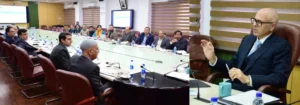Columbia professor: Academic atmosphere irreparably harmed
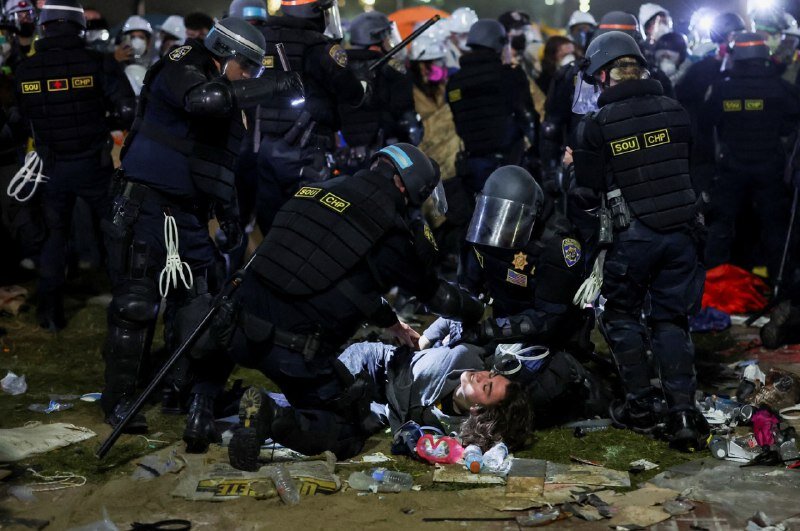
Gauri Viswanathan questions misguided administrative response to anti-war student protests in the U.S.
TEHRAN :- Student protests and the Gaza Solidarity Encampments taking place at American universities have been a global topic of discussion in recent weeks.
Some universities in the U.S. have engaged in negotiations with their students to end the protests peacefully. Others have been quick to call in police forces and use other pressure tactics, such as suspension and expulsion, to quell the demonstrations.
Among the most controversial universities is Columbia, where school administrators have faced pressure from both the government and students regarding their response to student activism.
The Tehran Times spoke to Dr Gauri Viswanathan, a distinguished Professor of English and Comparative Literature at Columbia University who has been bestowed with the honorary title of Class of 1933 Professor for her significant contributions to the institution and her field of study. She shared her insights on the nature of the student protests taking place on Columbia’s campus and her thoughts on the administrators’ response to the demonstrations.
Below is the transcript of our conversation with her:
Q: What is your perspective on the student protests currently taking place in universities across the U.S.? Do you believe they are predominantly peaceful or driven by antisemitism?
A: Speaking from my observations of the situation at Columbia, I can say that the student protests have been predominantly peaceful. Mainstream media have willfully mischaracterized the protests as antisemitic, equating criticism of Israel and its policies towards Palestinians with anti-Jewishness. Look at the headlines: protesters are invariably characterized as “pro-Palestinian” or “anti-Israel.” Rarely are they described as antiwar protesters.
Where speech was once protected by academic freedom, the strict regulation of speech that now takes place shows how far administrators have moved the goalposts of violence from actions to words. Slogans like “from the river to the sea,” “intifada,” and “free Palestine” are practically outlawed in universities because they are viewed as threatening to Jewish students. However, it should be noted that no student was threatened with or experienced physical violence at Columbia. It’s hard not to conclude that “Palestine” is the offensive word, sought to be erased in speech as in geography and history.
Across the US, students have exercised their right to protest against policies and actions that have resulted in mass-scale suffering, devastation, and loss of life in Gaza. They are laser-focused in their demand that universities cease their complicity with companies that profit from Israel’s military assault on Gaza. Students can see what mainstream news outlets have obscured: the images of untold suffering and destruction in Gaza. They have taken a principled stand to oppose the universities’ participation in any war efforts that result in such large-scale loss of civilian life.
This is not to deny, however, that the chanting crowds outside university gates have at times given off frightful vibes to Jewish students. It is a fact that some Jewish students are genuinely troubled by the chants and fearful about their personal security. Occasionally there have been scuffles between protesters and counter-protesters. But the students in the encampment were typically more subdued, comporting themselves as if they were in a commune.
The proliferation of signs and banners undoubtedly unsettled some Jewish students, but at Columbia the encampment did not block access to academic buildings or prevent instruction from taking place. The reason why people objected to them goes to the heart of what the encampment stood for: drawing attention to the plight of Gazans and demanding that Columbia divest from companies that profited from Israel’s war on Gaza. No administrator or counter-protester addressed this basic statement of fact made visible by the encampment. Instead, they appealed to rules of conduct in the case of administrators and antisemitism in the case of the counter-protesters.
Q: How do you assess the authorities’ response to the protests? Do you believe their use of force has been justified and proportionate?
A: Calling in the police is an invitation to use force that I believe was completely unjustified. Columbia’s president asserted that she did not have a choice, but the fact remains that the breakdown in communications with the students and faculty showed that the university was all too willing to associate itself with the mechanisms of state power. Rather than acting or speaking in behalf of students and faculty, top university officers bent too quickly to the pressures of trustees and donors. Their actions undermined the very notion of the university as a unique institution that engages with conflicting ideas to reach a point of mutual understanding, if not agreement. Calling in the police short-circuited this crucial mission of education. I find it astounding to observe that university officials across the US refer to the present unrest on campuses as something that will eventually “subside,” like a fever. This suggests that they have no real interest in working through difficult issues to arrive at possible resolutions. All they have is a misplaced confidence that the issues will go away if you lock down a campus.
Q: How will the reaction of university administrators towards protesting students affect the academic atmosphere in the United States?
A: The academic atmosphere has been irreparably harmed in my view. Many faculty and students regard the administrators’ action to call in the police as an ultimate betrayal of the vaunted bonds between the university and its community. I do not see how we can come back from this violation of trust. Students who might have been indifferent to the protests of their fellows became energized when they saw hordes of police in riot gear overrun their campus and forcibly remove their peers. The shock and distress they experienced will haunt them for a long time, I am sure. It affected their ability to write their final papers or study for their exams. It’s worth noting that the protesters in the encampment had less of a negative impact on students’ ability to concentrate on their studies than the police arrests that unfolded before their eyes.
Q: Do you think that American university professors and lecturers are refraining from expressing their opinions on Israeli actions out of concern for potential job consequences?
A: It’s hard to say. Untenured faculty may be more guarded about expressing their views because of potential consequences. Professional organizations like the American Association of University Professors have been a pivotal forum for defense of academic freedom, which is often the principle around which faculty energies have been most focused. Professors’ defense of academic freedom and the students’ right to nonviolent protest may have upstaged taking a political position on Israel’s actions, and perhaps that is a calculated move. I would have liked to see more debate about the complicit role played by universities historically in weapons manufacture and militarism in general. But as the protests intensify across the US, the capacity for earnest discussion about the key issues central to the Israel-Gaza conflict has proportionally been diminished.
Q: What steps do you believe administrators at Columbia and other institutions should take moving forward?
A: They need to talk to the students directly, listen to their demands, and engage with them as rational, responsible adults. Other universities have followed this path: Brown, Wesleyan, Rutgers, Northwestern. These universities and several others have arrived at peaceful resolutions without having to call the police. Students in some of these universities have voluntarily taken down their encampments as a result of administrators’ agreeing to review their investments and provide a timeline for divestment from companies profiting from Israel’s war machine. It can be done, but the punitive approach taken by other universities is counterproductive and has left deep wounds in the student and faculty community that will take a long time to heal, if at all.
I also believe university administrators should show some spine and emulate the courage of public school officials, who forcefully pushed back against the inquisitorial approach of the US Congressional members of the Education and Workforce committee last week. It is possible Columbia’s president may have taken a less hard-lined approach to the protesters were it not for the Congress members who interrogated her on April 17. She bent over backwards to placate them. They taunted her for being powerless in curbing the campus protests, accusing her of not doing anything to stem the tide of antisemitism at Columbia. By the time she returned to Columbia after her grilling in Washington D.C., she had decided that only by calling in the police on April 18 to remove the students in encampments could she decisively prove her leadership credentials. The psychodrama playing out in high-level administration needs to be analyzed by someone with more relevant expertise than I possess. But there’s no question in my mind that the “outside agitator” label used to disqualify the sincerity of the student protests is just as applicable to the politicians who are exploiting the dissension on campuses to serve their own ends, which are nothing less than the degradation of the university as a space for critical thought and open discussion.
(TEHRAN TIMES)


